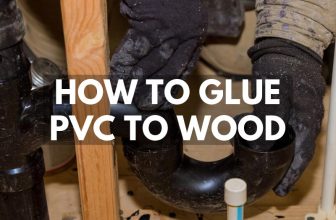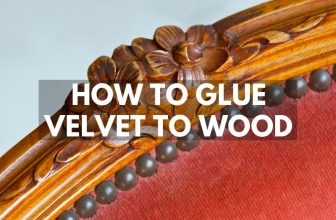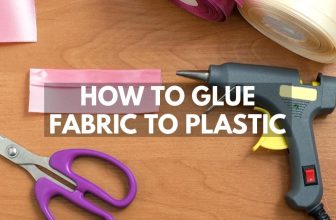
A Complete Guide to the Best Glass Glue
There are 5 different types of glue you can use for glass that will create a strong bond and in some cases add shock absorption. A silicone mix adhesive is the best glass glue for larger projects and end joints while super glues are great for small fixings. Other adhesives like epoxy, polyurethane, and even UV glue can also be used successfully on glass.
Whenever faced with the challenge of bonding something to glass it can be hard to know which glue is right. In this guide, we pick the best glues for glass and explain why some work better than others in certain situations. It is important to understand the different types of glue for glass so be sure to read down the page.
5 Best Glues for Glass
Araldite Clear Epoxy Adhesive


Araldite Clear Epoxy Adhesive is one of the clearest epoxies for glass which makes it ideal for discreet repairs. The bond is super strong and will last a lifetime which makes it suitable for jewelry and glassware.
You simply mix the two part epoxy together to activate the setting process which takes 5 minutes and then within 3 hours your glue will have reached full strength. As well as creating transparent joints on glass, Ardalite Clear Epoxy will stick very well to other materials like metal or wood.
Clear Aquarium Silicone Sealant
![]()

Clear Aquarium Silicone Sealant is designed for making and fixing aquariums which means it is very strong and highly waterproof as well as being non-toxic to fish. It forms super cohesive bonds with glass without any primer and is non-slump which means it can be applied to vertical surfaces without sagging.
As well as aquariums, you can use this as a general sealant or adhesive on most glass projects as it bonds pretty well to metal, wood, plastic, and masonry. This is easily the most reliable and transparent glass glue and is highly recommended for any kind of waterproof seal.
Loctite Glass Glue


Loctite Glass Glue is just like superglue however it dries crystal clear and has some flexibility which prevents it from creating a brittle joint. The small tube is perfect for small glass repairs and DIY jobs around the house.
It will create a lasting bond on things like broken wine glasses, chandeliers, jewelry, Swarovski ornaments, and can also help to temporarily strengthen a chipped windscreen. Just like superglue, this can be used on most materials and you don’t need much to form a super-strong bond.
3M 08609 Window-Weld Super Fast Urethane


3M 08609 Window-Weld Super Fast Urethane is one of the world’s most trusted automotive glass glues. It is used mainly to install windows on cars and vans which is why it has such a solid reputation as being the most reliable on the road.
As you can imagine, car window glue needs to absorb a lot of shocks and be very reliable so that you don’t lose a window on the motorway and cause an accident. Because it is so reliable, people use Window-Weld for all sorts of applications including fixing non-structural body panels and fixing leaks.
CRL Clear UV740 Low Viscosity UV Adhesive


CRL Clear UV740 Low Viscosity UV Adhesive is one of the better UV glues available to the general public. Some UV glues don’t cure very well however we have found CRL Clear does work as it is supposed to.
The benefit of UV glass glue is that you can get your components into position and then instantly set it in place using a UV light. A strong UV flashlight does help the glue set faster but once it is cured it has a tensile strength of 1737 PSI for use on glass furniture.

Different Types of Glass Glue
Glass is a tricky surface to work within that it has a very slippery and polished finish. It also comes with inherent dangers of cracking or smashing as well as being heavy and sharp. Choosing the right kind of glass glue can make the difference between a professional finish and a sticky mess.
Silicone Adhesive
Silicone adhesive is typically used as a sealant for windows and home fixtures that are in close proximity to water. You probably have some around your double glazing as well as on your kitchen and bathroom fittings. It creates excellent contact between glossy surfaces and provides the perfect seal with glass. But is it a good adhesive?
Silicone will work as an adhesive for certain tasks but it isn’t the best glue for sticking things to vertical glass. It benefits from remaining flexible and never cracking, even under high and low temperatures. Silicone sealant is one of the safest types of glue to use on the glass as it bonds well and provides shock absorption on the joint. To get real adhesive strength from silicone you need a formula that is mixed with stronger glue.
You can get silicone glue that has been mixed with other substances that will grab and grip onto glass far better than a typical sealant. These hybrid polyurethane silicone adhesives combine the benefits of both substances. This creates a very useful glass glue for tasks like stabilizing a glass tabletop or fixing a flexible joint. Look for high modulus PU sealant on the label.
Silicone is easy to apply to large glass surfaces and is available in small and industrial tube sizes. The best thing about using silicone to glue glass is its shock absorption and ability to act as a bridge between glass and other hard surfaces.
UV Adhesive
UV Adhesive needs to be directly exposed to ultraviolet light in order to fully cure, which makes it ideal for transparent materials like glass. Up to twice as strong as regular superglue, UV glue is one of the best general glass glues around the house and for industrial use too.
UV glue is a liquid-based mix of polymer resins with the added photochemical promoter. Under UV light the photochemical component reacts and causes the glue to harden within seconds. The glue is often colored blue and sets clear when fully cured so you know that it has had enough UV light.
The benefit of using UV glue on glass is the incredibly strong bond it creates and the ability to effectively choose your own instant cure time. This is especially useful for precision jobs that may take some slight adjustments before curing. UV curing adhesives are often used in decorative glass art because they set so crystal clear.
Super Glue (Cyanoacrylate)
Super glue is one of the most popular glass adhesives for small DIY fixes around the home. It provides an extra-strong bond that dries rapidly and will stick just about anything to glass. The fast-acting formula will set in around 30 seconds and cure in 24 hours which gives you just enough time for a small correction once contact is made.
Most cyanoacrylates come in tiny tubes due to their mighty power and you really don’t need a lot of it to stick glass back together. Because of its small packaging, the tiny nozzle makes intricate applications very easy and suitable for very detailed tasks. You can buy cyanoacrylates in larger quantities for more industrial use but we only tested the standard super glue packets.
Accessible around the world, super glues are available from most corner shops, supermarkets, and DIY stores across the world. You should wear nitrile gloves when working with super glue as it is easy to stick your fingers together if things get messy. Super glue is our top pick for gluing small items to glass and intricate applications.
Epoxy
Epoxy resins are by far the strongest types of glue to use on glass and are suitable for most other surface materials. Because epoxies bond well to all types of metal, they are an ideal choice for gluing glass to any kind of metal frame. They also work equally well to attach metal objects to glassy surfaces even on vertical angles.
Epoxy resin is often supplied in a two-part mix that needs to be combined in equal amounts to activate the chemical binding process. The first part is the resin and the second part is the hardener which causes the epoxy to set. You can buy epoxy in both a liquid and putty format which will suit some tasks better than others.
When working with glass it is always best to work with clear epoxy for more discreet adhesion and improved aesthetics. It is important to let the epoxy glue fully cure the glass before testing its stability. If I could only use one glass glue for all jobs it would have to be a clear epoxy resin.
Polyurethane
Polyurethane or PU glues can be an excellent choice for glass although some of their benefits are lost on such a shiny surface. Polyurethane glues are known to expand up to 3 times but because glass won’t absorb the glue it just foams on the surface. Specially designed PU glass glues don’t do this so much and also set much clearer.
Polyurethane glues for glass are often blended with a silicone compound which allows it to be used as both an adhesive and a sealant. These are known as hybrid polyurethanes and some are designed specifically to join glass with glue. For large projects that demand a lot of glue, this is a great option.
Frequently Asked Questions
What is the Best Glue for Glass to Glass?
When gluing glass to glass you should choose between clear epoxy, super glue, and UV adhesive. Epoxy has the strongest bond and is what I use with most glass fixtures however the set and cure time may be an issue for some people. Superglue will set far quicker but is more brittle and typically comes in tiny tubes which may not be suitable for big jobs. UV glue is ideal for precision jobs and a controlled set time.
What is the Best Glue for Glass to Metal?
The best adhesive for sticking glass to metal is an epoxy resin which will provide a strong joint in most cases. For larger more industrial jobs a silicone sealant or hybrid polyurethane will go much further and be far easier to work with. For the small and intricate repairs around the house, super glue will do the job just fine.
What is the Best Glue for Glass to Plastic?
It isn’t very often that you will need to glue plastic to glass or glass to plastic so knowing what to use takes a bit of research. For small-scale projects, super glues are the preferred method of joining but larger projects may require more volume and so a PU adhesive may work best.
What is the Best Glue for Glass to Metal Table?
To glue a glass tabletop back onto its frame I would always recommend using a slow drying epoxy resin. For such a large piece of glass you should use the strongest adhesive you can find and if it happens to be flexible then all the better. Epoxy adhesive is perfect and sets clear to preserve the aesthetics of your glass and metal table.
What is the Best Glue for Glass to Acrylic?
Bonding glass to acrylic can be quite tricky as there are no glues that knock this out of the park. For many purposes, I would opt for silicone-based glue and especially if the joint needs to be waterproof. If for example you are building an aquarium or fixing an air filter to a glass fish tank then fish-safe silicone is what the pros use.
What is the Best Glue for Glass to Concrete?
When attempting to glue glass to concrete you need to be sure that the adhesive seal will hold. The last thing you want is a heavy piece of glass falling from height for obvious reasons. To safely secure the glass to concrete with glue I would recommend using a high-grab polymer or polyurethane adhesive.
What is the Best Glue for Glass to Cement?
When gluing glass to cement, a silicone hybrid adhesive will provide sufficient grab and shock absorption to make a strong bond. Similar to concrete and brick, you can also use a polyurethane sealant or epoxy resin with high success too.
What is the Best Glue for Glass to Brick?
When gluing glass to brick you need an adhesive with an excellent grab that sets with a very strong bond. Superglue will NOT be too effective unless you use a lot of it and so a polyurethane adhesive or epoxy resin is best for adhering to both brick and glass.
What is the Best Glue for Glass to Ceramic?
Ceramic and glass both have similar surfaces and so choosing a glue that works well isn’t so difficult. I would use a silicone-type adhesive for most jobs that have a gap to fill or a large area to cover. For fixings that are weight-bearing, I would usually sway towards an epoxy resin that sets hard.
Glue Lab hopes this guide to the best glass glues proved helpful in your project.






